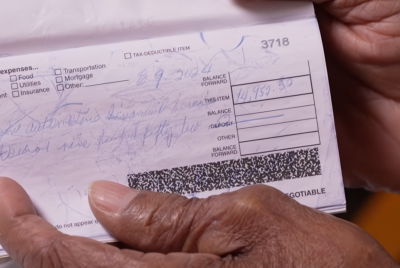'I Save Over 60% of My Income': 25-Year-Old Reveals How He's Budgeting for a Home, Retirement on $40K
West wants to purchase a home by age 35

Will West earns about $40,000 (£29,903) as a full-time behavioural health technician in southern Utah. The 25-year-old is also pursuing an undergraduate degree in social work. Post graduation in 2026, West plans to enrol in an online one-year master's program.
After completing his master's, he intends to relocate to Northern California in pursuit of a government job paying up to $85,000 (£63,544) annually. While he is saving over 60% of his current paycheque, West is still figuring out how to pay for his master's, which is expected to cost between $15,000 and $30,000 (£11,213 and £22,427). He also plans to save three months' worth of expenses to cover the move to California. By age 35, West wants to own a house.
As part of his short and long-term goals, West is depositing 45% of his monthly income into two checking accounts and 15% or about $400 (£300) into a regular savings account. He uses one of the checking accounts to monitor food costs, and the regular account currently holds $876 (£654).
A Comprehensive Monthly Investment Strategy
Around 4% of his monthly pay goes into stock-index funds via a Roth IRA, which currently holds over $6,300 (£4,709). West also has 401(k) investments of $21,481 (£16,058), and his contributions of 2% of his monthly income are matched by his employer. The individual has also saved $609 (£455) in a health savings account.
Elsewhere, West has three brokerage accounts. He uses one account to invest $950 (£710) monthly in stock exchange-traded funds (ETFs) for long-term expenses. It is currently valued at $16,832 (£12,583).
The second and third brokerage accounts, with a combined value of over $13,000 (£8,718), are for medium-term and postgrad relocation expenses. Most of the investments in these accounts are in US Treasury ETFs.
Bills and Liabilities
West's monthly fixed costs include a $550 (£411) payment towards rent and utilities, $86 (£64) for car insurance, $80 (£60) for transportation, and $480 (£358) for groceries and dining out. He also pays just over $60 (£44) for health and dental insurance from each paycheck.
However, his college tuition is covered by scholarships, grants, and student loans. He has a student loan of $5,730 (£4,283) at a 5.5% interest rate, accruing interest. Another $2,250 (£1,682) student loan at a 6.39% interest rate will start accruing interest after he completes graduate school.
What can West do Better?
Certified financial planner (CFP) Amanda Otto believes that West could streamline his accounts, starting with merging the checking accounts and depositing $2,500 (£1,868) in the combined account as a capital buffer.
She also thinks opening a high-yield savings account could work well to grow an emergency fund. It should cover up to six months of expenses, ideally holding $17,000 (£12,708). The high-yield account savings can also be used to cover planned costs, like relocation. The CFP also suggested that West move the $10,000 investment in US Treasury funds into the high-yield savings account.
West should also prioritise his student debt, which is accruing interest. Otto recommended West use $1,350 (£1,009) he currently deposits monthly into savings and primary brokerage account to repay the $5,730 student loan.
While the financial advisor believes West could take out a loan for graduate school, he should explore scholarships or grants. He should also research if he is eligible for income-based repayment or public-service loan forgiveness programs based on possible future employment.
'He needs to balance accruing some low-interest debt with his savings goals,' according to Otto.
West can focus better on his longer-term goals when he clears the student debt. The extra cash can be used to save for retirement and to purchase a home. Otto believes West could merge the three brokerage accounts into a single account to focus only on home purchase, as well as to trim brokerage fees.
Furthermore, West can begin maxing out Roth IRA contributions and bump his 401(k) contribution to 3% to benefit from a higher employer match. Fully funding his HSA, which has a $4,300 (£3,214) limit for 2025, will also lower his taxable income.
'He is doing a stellar job living within his means and saving for the future,' Otto stated.
© Copyright IBTimes 2025. All rights reserved.




















